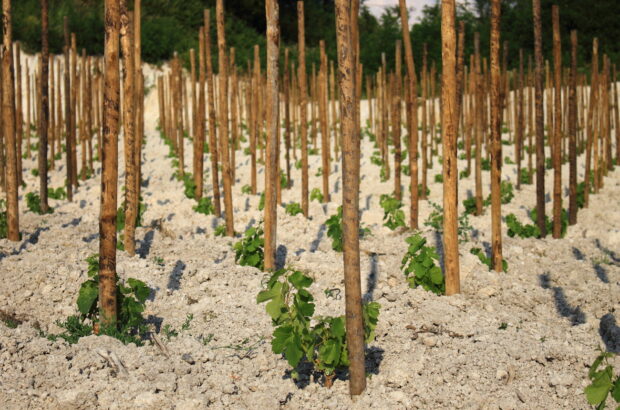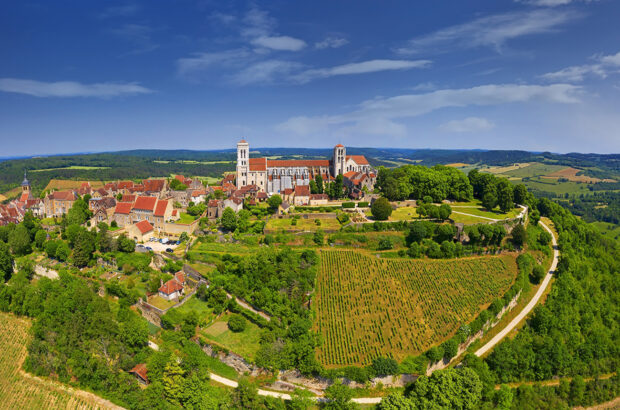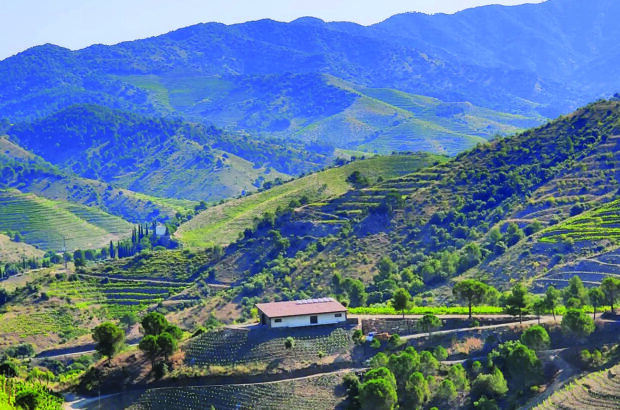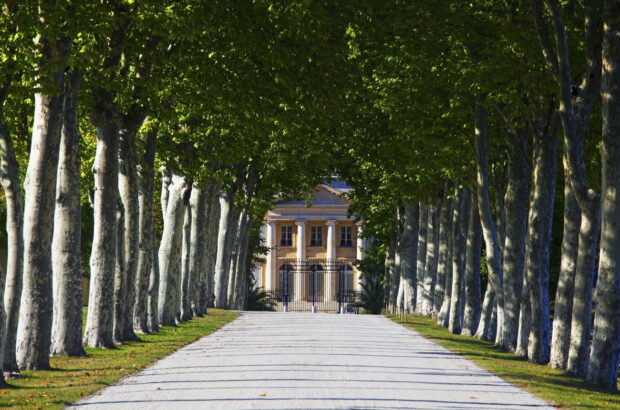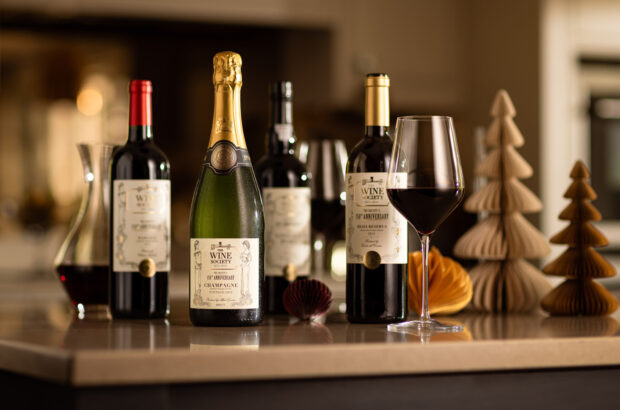Among grape varieties that cause knee-jerk reactions, Chardonnay is a contender for the top slot. California Chardonnay nearly guarantees a divisive response.
But many of the greatest and most influential dry white wines are Chardonnays, Californian among them. Looking into the subject more reveals deeper themes of consumer preferences.
Scroll down for Matthew Luczy’s California Chardonnay tasting notes
{"content":"PHA+VGhlIEdvbGRlbiBTdGF0ZeKAmXMgcmVsYXRpb25zaGlwIHdpdGggQ2hhcmRvbm5heSBkYXRlcyB0byB0aGUgMTg4MHMgd2hlbiBDaGFybGVzIFdldG1vcmUgcGxhbnRlZCDigJhzdWl0Y2FzZSBjdXR0aW5nc+KAmSBmcm9tIHRoZSBDw7R0ZSBkJiM4MjE3O09yIGVhc3Qgb2YgU2FuIEZyYW5jaXNjbyYjODIxNztzIEJheSBBcmVhLiBJbiB0aGUgeWVhcnMgZm9sbG93aW5nIFByb2hpYml0aW9uIGFuZCB0d28gV29ybGQgV2FycywgTmFwYSYjODIxNztzIDxzdHJvbmc+PGEgaHJlZj0iaHR0cHM6Ly93d3cuZGVjYW50ZXIuY29tL3dpbmUtbmV3cy9oaXN0b3JpYy1uYXBhLXdpbmVyeS1zdG9ueS1oaWxsLXNvbGQtdG8taGVpdHotY2VsbGFyLW93bmVyLTQ1MTExNy8iPlN0b255IEhpbGw8L2E+PC9zdHJvbmc+LCA8c3Ryb25nPjxhIGhyZWY9Imh0dHBzOi8vd3d3LmRlY2FudGVyLmNvbS9wcmVtaXVtL3Byb2R1Y2VyLXByb2ZpbGUtbW91bnQtZWRlbi13aW5lLTQyMTI3OS8iPk1vdW50IEVkZW48L2E+PC9zdHJvbmc+IGluIHRoZSBTYW50YSBDcnV6IE1vdW50YWlucyBhbmQgU29ub21hJiM4MjE3O3MgSGFuemVsbCB3b3VsZCBlc3RhYmxpc2ggbm93LXNlbWluYWwgQ2hhcmRvbm5heSB2aW5leWFyZHMuPC9wPgo8cD48c3Ryb25nPjxhIGhyZWY9Imh0dHBzOi8vd3d3LmRlY2FudGVyLmNvbS9wcmVtaXVtL2NoYXRlYXUtbW9udGVsZW5hLXByb2ZpbGUtdG9wLXdpbmVzLTQwNTM2OS8iPkNoYXRlYXUgTW9udGVsZW5hPC9hPjwvc3Ryb25nPiYjODIxNjtzIHZpY3RvcnkgYXQgdGhlIDxzdHJvbmc+PGEgaHJlZj0iaHR0cHM6Ly93d3cuZGVjYW50ZXIuY29tL3RhZy9qdWRnZW1lbnQtb2YtcGFyaXMvIj4xOTc2IEp1ZGdtZW50IG9mIFBhcmlzPC9hPjwvc3Ryb25nPiBmdWVsbGVkIGFscmVhZHktZ3Jvd2luZyBpbnRlcmVzdCBpbiBDaGFyZG9ubmF5LiBQaW9uZWVyaW5nIHdpbmVtYWtlcnMgc3VjaCBhcyBKb2huIEtvbmdzYWFyZCwgRnJlZCBNY0NyZWEgYW5kIE1pa2UgQ2hlbGluaSBvZiBTdG9ueSBIaWxsLCBCcmFkIFdlYmIgb2YgSGFuemVsbCBhbmQgSmltIENsZW5kZW5lbiBvZiBBdSBCb24gQ2xpbWF0IHRvb2sgbGVzc29ucyBsZWFybmVkIGZyb20gRXVyb3BlYW4gY2VsbGFycyBiYWNrIHRvIENhbGlmb3JuaWEsIGNvbWJpbmluZyB0aGVtIHdpdGggdGhlaXIgb3duIGlubm92YXRpb25zLjwvcD4KPHA+VGhlcmUgd2FzIGEgbG90IG9mIHBsb25rIGluIHRoZSBtaXggYXMgd2VsbC4g4oCYQ2FsaWZvcm5pYSBDaGFibGlz4oCZIChqdWcgd2luZSBub3QgZXZlbiBuZWNlc3NhcmlseSBtYWRlIGZyb20gQ2hhcmRvbm5heSkgbGF0Y2hlZCBpdHMgaWRlbnRpdHkgdG8gYSBmYW1vdXMgcmVnaW9uIGNyaXBwbGVkIGJ5IFdvcmxkIFdhciBJSS4gVGhlIGJhY2tsYXNoIGZyb20gdGhpcyB3b3VsZCBldmVudHVhbGx5IGxlYWQgdG8gYW4gaW5jcmVhc2Ugb2YgdmFyaWV0YWxseSBsYWJlbGxlZCBDYWxpZm9ybmlhIHdpbmUg4oCTIGEgcmFyZSBwcmFjdGljZSB1cCB0byB0aGlzIHBvaW50LjwvcD4KPHA+PGRpdiBjbGFzcz0iYWQtY29udGFpbmVyIGFkLWNvbnRhaW5lci0tbW9iaWxlIj48ZGl2IGlkPSJwb3N0LWlubGluZS0yIiBjbGFzcz0iaXBjLWFkdmVydCI+PC9kaXY+PC9kaXY+PC9wPgo8aDM+Qm9tYmFzdGljIGJ1dHRlcmJvbWJzPC9oMz4KPHA+SW4gMTk4MiwgYW4gYWNjaWRlbnQgb2Ygc29ydHMgd291bGQgZm9yZXZlciBjaGFuZ2UgQ2FsaWZvcm5pYSBDaGFyZG9ubmF5LiBBdCBLZW5kYWxsIEphY2tzb24sIGEgc3R1Y2sgZmVybWVudGF0aW9uIGxlZnQgdGhlIHdpbmUgd2l0aCBzb21lIHJlc2lkdWFsIHN1Z2FyLiBXaGVuIGNvbWJpbmVkIHdpdGggZmVybWVudGF0aW9uIGluIG5ldyBvYWsgYXMgd2VsbCBhcyBtYWxvbGFjdGljIGZlcm1lbnRhdGlvbiwgYSBibG9ja2J1c3RlciB3YXMgYm9ybi4gVGhpcyBydW5hd2F5IHN1Y2Nlc3MgcmVzdWx0ZWQgaW4gYSBjaGFpbiByZWFjdGlvbiBvZiBmaW5hbmNpYWxseSByZXdhcmRpbmcgZW11bGF0aW9uIGFjcm9zcyB0aGUgc3RhdGUuPC9wPgo8cD5BbG9uZyB3aXRoIG1hbnkgb2YgQ2FsaWZvcm5pYSYjODIxNztzIHdpbmVzLCBwYXJ0aWN1bGFybHkgPHN0cm9uZz48YSBocmVmPSJodHRwczovL3d3dy5kZWNhbnRlci5jb20vd2luZS9ncmFwZS12YXJpZXRpZXMvY2FiZXJuZXQtc2F1dmlnbm9uLyI+Q2FiZXJuZXQgU2F1dmlnbm9uPC9hPjwvc3Ryb25nPiBhbmQgPHN0cm9uZz48YSBocmVmPSJodHRwczovL3d3dy5kZWNhbnRlci5jb20vd2luZS9ncmFwZS12YXJpZXRpZXMvcGlub3Qtbm9pci8iPlBpbm90IE5vaXI8L2E+PC9zdHJvbmc+LCBDaGFyZG9ubmF5IGJlY2FtZSBib21iYXN0aWMgaW4gdGhlIGxhdGUgMTk5MHMgYW5kIGVhcmx5IDIwMDBzLiBXaGlsZSB0aGVyZSB3ZXJlIHN0aWxsIHBvY2tldHMgb2YgdHJhZGl0aW9uYWwgYW5kIGV4cHJlc3NpdmUgZXhhbXBsZXMsIG1hbnkgd2luZXJpZXMgZm9sbG93ZWQgdGhlIHZvZ3VlIG9mIHJpcGVuZXNzIGFuZCBsb3cgYWNpZGl0eS48L3A+CjxkaXYgaWQ9ImF0dGFjaG1lbnRfNDUyMDk2IiBzdHlsZT0id2lkdGg6IDY0MHB4IiBjbGFzcz0id3AtY2FwdGlvbiBhbGlnbm5vbmUiPjxpbWcgZmV0Y2hwcmlvcml0eT0iaGlnaCIgZGVjb2Rpbmc9ImFzeW5jIiBhcmlhLWRlc2NyaWJlZGJ5PSJjYXB0aW9uLWF0dGFjaG1lbnQtNDUyMDk2IiBjbGFzcz0ibGF6eWxvYWQgYmx1ci11cCB3cC1pbWFnZS00NTIwOTYgc2l6ZS1sYXJnZSIgZGF0YS1wcm9jZXNzZWQgc3JjPSJodHRwczovL3d3dy5kZWNhbnRlci5jb20vd3AtY29udGVudC90aGVtZXMvc2ltYmEtdGhlbWUvYXNzZXRzL2ltYWdlcy9wbGFjZWhvbGRlci5wbmciIGRhdGEtc3JjPSJodHRwczovL2tleWFzc2V0cy50aW1laW5jdWsubmV0L2luc3BpcmV3cC9saXZlL3dwLWNvbnRlbnQvdXBsb2Fkcy9zaXRlcy8zNC8yMDIxLzAxL0VsLURpYWJsby1WaW5leWFyZC1DaGFyZG9ubmF5LVdlbnRlLUNsb25lLTYzMHg0MTcuZ2lmIiBhbHQ9IkNhbGlmb3JuaWEgQ2hhcmRvbm5heSAtIFdlbnRlIENsb25lIiB3aWR0aD0iNjMwIiBoZWlnaHQ9IjQxNyIgZGF0YS1zaXplcz0iYXV0byIgZGF0YS1zcmNzZXQ9Imh0dHBzOi8va2V5YXNzZXRzLnRpbWVpbmN1ay5uZXQvaW5zcGlyZXdwL2xpdmUvd3AtY29udGVudC91cGxvYWRzL3NpdGVzLzM0LzIwMjEvMDEvRWwtRGlhYmxvLVZpbmV5YXJkLUNoYXJkb25uYXktV2VudGUtQ2xvbmUtNjMweDQxNy5naWYgNjMwdywgaHR0cHM6Ly9rZXlhc3NldHMudGltZWluY3VrLm5ldC9pbnNwaXJld3AvbGl2ZS93cC1jb250ZW50L3VwbG9hZHMvc2l0ZXMvMzQvMjAyMS8wMS9FbC1EaWFibG8tVmluZXlhcmQtQ2hhcmRvbm5heS1XZW50ZS1DbG9uZS0zMDB4MTk4LmdpZiAzMDB3LCBodHRwczovL2tleWFzc2V0cy50aW1laW5jdWsubmV0L2luc3BpcmV3cC9saXZlL3dwLWNvbnRlbnQvdXBsb2Fkcy9zaXRlcy8zNC8yMDIxLzAxL0VsLURpYWJsby1WaW5leWFyZC1DaGFyZG9ubmF5LVdlbnRlLUNsb25lLTEzNXg4OS5naWYgMTM1dywgaHR0cHM6Ly9rZXlhc3NldHMudGltZWluY3VrLm5ldC9pbnNwaXJld3AvbGl2ZS93cC1jb250ZW50L3VwbG9hZHMvc2l0ZXMvMzQvMjAyMS8wMS9FbC1EaWFibG8tVmluZXlhcmQtQ2hhcmRvbm5heS1XZW50ZS1DbG9uZS0zMjB4MjEyLmdpZiAzMjB3LCBodHRwczovL2tleWFzc2V0cy50aW1laW5jdWsubmV0L2luc3BpcmV3cC9saXZlL3dwLWNvbnRlbnQvdXBsb2Fkcy9zaXRlcy8zNC8yMDIxLzAxL0VsLURpYWJsby1WaW5leWFyZC1DaGFyZG9ubmF5LVdlbnRlLUNsb25lLTYyMHg0MTAuZ2lmIDYyMHcsIGh0dHBzOi8va2V5YXNzZXRzLnRpbWVpbmN1ay5uZXQvaW5zcGlyZXdwL2xpdmUvd3AtY29udGVudC91cGxvYWRzL3NpdGVzLzM0LzIwMjEvMDEvRWwtRGlhYmxvLVZpbmV5YXJkLUNoYXJkb25uYXktV2VudGUtQ2xvbmUtOTIweDYwOS5naWYgOTIwdywgaHR0cHM6Ly9rZXlhc3NldHMudGltZWluY3VrLm5ldC9pbnNwaXJld3AvbGl2ZS93cC1jb250ZW50L3VwbG9hZHMvc2l0ZXMvMzQvMjAyMS8wMS9FbC1EaWFibG8tVmluZXlhcmQtQ2hhcmRvbm5heS1XZW50ZS1DbG9uZS0xMjIweDgwNy5naWYgMTIyMHciIHNpemVzPSIobWF4LXdpZHRoOiA2MzBweCkgMTAwdncsIDYzMHB4IiAvPjxwIGlkPSJjYXB0aW9uLWF0dGFjaG1lbnQtNDUyMDk2IiBjbGFzcz0id3AtY2FwdGlvbi10ZXh0Ij5DaGFyZG9ubmF5IChmcm9tIHRoZSBXZW50ZSBjbG9uZSkgZnJvbSB0aGUgRWwgRGlhYmxvIFZpbmV5YXJkLiBDcmVkaXQ6IFJhbSYjODIxNztzIEdhdGUgV2luZXJ5PC9wPjwvZGl2Pgo8ZGl2IGNsYXNzPSJhZC1jb250YWluZXIgYWQtY29udGFpbmVyLS1tb2JpbGUiPjxkaXYgaWQ9InBvc3QtaW5saW5lLTMiIGNsYXNzPSJpcGMtYWR2ZXJ0Ij48L2Rpdj48L2Rpdj4KPHA+U3RhcnRpbmcgaW4gdGhlIGVhcmx5IDIwMTBzLCB0aG91Z2gsIHRoaW5ncyBzZXR0bGVkIGludG8gYSBzZW5zaWJsZSBtaWRkbGUgZ3JvdW5kLiBUaGlzIGlzIHN0aWxsIHRoZSBjYXNlIOKAkyBhbmQgbm90IG9ubHkgYXQgYXJ0aXNhbmFsIHdpbmVyaWVzIGRlZGljYXRlZCB0byBleHByZXNzaW5nIHRlcnJvaXIsIGJ1dCBhbHNvIGFtb25nIGJpZ2dlciwgbW9yZSBjb21tZXJjaWFsIHByb2R1Y2VycyBvbmNlIGRlZmluZWQgYnkgdGhlaXIg4oCYYnV0dGVyYm9tYuKAmSBzdHlsZXMuPC9wPgo8cD5UaGlzIHJvbGxlcmNvYXN0ZXIgb2YgdHJlbmRzIG9ubHkgY29uZmlybXMgdGhhdCBzdHlsaXN0aWMgZmFkcyBoYXZlIG5vdGhpbmcgdG8gZG8gd2l0aCBDaGFyZG9ubmF5IGl0c2VsZi4gVGhlIGdyYXBlIGNhbiBiZSBsaWtlbmVkIHRvIHRvZnU6IGl0IGhhcyBsaXR0bGUgaW50cmluc2ljIHZhcmlldGFsIGNoYXJhY3RlciBidXQgbWVsZHMgd2l0aCB0aGUgZmxhdm91cnMgc3Vycm91bmRpbmcgaXQsIGJvdGggaW4gdGhlIHZpbmV5YXJkIGFuZCBjZWxsYXIuIENoYXJkb25uYXkgaXMgYWx3YXlzIHBsYXlpbmcgaGVhZHMgdXAgcG9rZXI7IGl0cyBjYXJkcyBmYWNlLXVwIG9uIHRoZSB0YWJsZSBmb3IgYWxsIHRvIHNlZS4gVGhlcmUgaXMgbm93aGVyZSB0byBoaWRlIHdpdGggQ2hhcmRvbm5heSwgbWFraW5nIGl0IG9uZSBvZiB0aGUgdWx0aW1hdGUgdGVycm9pci1leHByZXNzaW9uIGdyYXBlIHZhcmlldGllcy48L3A+CjxkaXYgY2xhc3M9ImFkLWNvbnRhaW5lciBhZC1jb250YWluZXItLW1vYmlsZSI+PGRpdiBpZD0icG9zdC1pbmxpbmUtNCIgY2xhc3M9ImlwYy1hZHZlcnQiPjwvZGl2PjwvZGl2Pgo8aDM+T2FrIHVzZSBhbmQgbWFsb2xhY3RpYyBmZXJtZW50YXRpb248L2gzPgo8cD5PbmUgZWxlcGhhbnQgaW4gdGhlIHJvb20gaXMgPHN0cm9uZz48YSBocmVmPSJodHRwczovL3d3dy5kZWNhbnRlci5jb20vbGVhcm4vb2FrLWJhcnJlbHMtMzM1OTkwLyI+b2FrIHVzZTwvYT48L3N0cm9uZz4sIHdpdGggdGhlIHBlcmNlcHRpb24gdGhhdCBvYWtlZCB3aW5lcyB3aWxsIG5lY2Vzc2FyaWx5IHRhc3RlIOKAmG9ha3nigJkgZnVydGhlciBjb25mdXNpbmcgbWF0dGVycy4gTG9vayBubyBmdXJ0aGVyIHRoYW4gdGhlIGdyYW5kcyBjcnVzIG9mIHRoZSBDw7R0ZSBkZSBCZWF1bmUgZm9yIGltcGVjY2FibGUgZXhhbXBsZXMgb2YgQ2hhcmRvbm5heSBtYXR1cmVkIGluIDEwMCUgbmV3IG9hay4gV29vZCBpcyBhIHBvcm91cywgYnJlYXRoaW5nIG1lbWJyYW5lLCBhbmQganVkaWNpb3VzIHVzZSBvZiBuZXcgdmVzc2VscyBjYW4gZW5oYW5jZSB0aGUgZmxhdm91cnMgYW5kIHRleHR1cmVzIG9mIHRoZSB3aW5lIGluc2lkZS48L3A+CjxwPkkgZmluZCBhbiBhbmFsb2d5IHdpdGggc2FsdCB1c2VmdWwuIFRoZSBtb3N0IG1lbW9yYWJsZSBtZWFscyBvZiBtb3N0IG9mIG91ciBsaXZlcyBhbG1vc3QgY2VydGFpbmx5IGNvbnRhaW5lZCBtb3JlIHNhbHQgdGhhbiB3ZSB3ZXJlIGF3YXJlIG9mLiBXaGVuIHNlYXNvbmVkIGNvcnJlY3RseSwgeW91IHdvdWxkIG5ldmVyIGNhbGwgYSBkaXNoIOKAmHNhbHR54oCZLiBCdXQgaWYgeW91IGNvdWxkIHJldGFzdGUgdGhlIGZvb2Qgd2l0aG91dCB0aGUgYWRkaXRpb24gb2Ygc2FsdCwgaXRzIGFic2VuY2Ug4oCTIGFuZCB0aGUgYmxhbmRuZXNzIG9mIHRoZSBmb29kIOKAkyB3b3VsZCBiZSBpbW1lZGlhdGVseSBvYnZpb3VzLjwvcD4KPGRpdiBjbGFzcz0iYWQtY29udGFpbmVyIGFkLWNvbnRhaW5lci0tbW9iaWxlIj48ZGl2IGlkPSJwb3N0LWlubGluZS01IiBjbGFzcz0iaXBjLWFkdmVydCI+PC9kaXY+PC9kaXY+CjxwPkFuIGluaXRpYWwgb3ZlcmNvcnJlY3Rpb24gYnkgQ2hhcmRvbm5heSBwcm9kdWNlcnMgd2FzIHRvIGVsaW1pbmF0ZSBvYWsgYW5kIHVzZSBzdGFpbmxlc3Mgc3RlZWwgdGhyb3VnaG91dCB0aGUgd2luZW1ha2luZyBwcm9jZXNzLiBUaGlzIGFwcHJvYWNoIGFjaGlldmVzIHZhcnlpbmcgbGV2ZWxzIG9mIHN1Y2Nlc3MsIGFzIHN0ZWVsJiM4MjE3O3MgaW5lcnQgbmF0dXJlIGNhbiBwcm9kdWNlIHdpbmVzIGxhY2tpbmcgZGVwdGgsIGNvbXBsZXhpdHkgYW5kIGRpbWVuc2lvbi48L3A+CjxwPkEgaHlicmlkIHRlY2huaXF1ZSAodW5vZmZpY2lhbGx5IGtub3duIGFzIHRoZSDigJhSb3Vsb3QgbWV0aG9k4oCZLCBhZnRlciBsZWdlbmRhcnkgTWV1cnNhdWx0IHByb2R1Y2VyIEplYW4tTWFyYyBSb3Vsb3QpIGhhcyBnYWluZWQgcG9wdWxhcml0eS4gV2luZW1ha2VycyBhZ2UgdGhlIHdpbmUgb24gaXRzIGxlZXMgaW4gYmFycmVsIGZvciBhYm91dCAxMiBtb250aHMgYW5kIHRoZW4gcmFjayBpdCBpbnRvIGEgc3RhaW5sZXNzIHRhbmsgZm9yIGFub3RoZXIgc2l4IG1vbnRocyBvciBzby4gVGhpcyBwcmFjdGljZSBsZXRzIHJpY2huZXNzIGFuZCBicmlnaHRuZXNzIGludGVydHdpbmUsIGJyaW5naW5nIG91dCBhcm9tYXMgb2Ygc3RydWNrIG1hdGNoIGFuZCBmbGludCB0aGF0IGVudGljZSBtYW55IENoYXJkb25uYXkgbG92ZXJzLjwvcD4KPHA+PHN0cm9uZz48YSBocmVmPSJodHRwczovL3d3dy5kZWNhbnRlci5jb20vbGVhcm4vd2hhdC1pcy1tYWxvbGFjdGljLWZlcm1lbnRhdGlvbi01MTU5MS8iPk1hbG9sYWN0aWMgZmVybWVudGF0aW9uPC9hPjwvc3Ryb25nPiBpcyBhbm90aGVyIGhvdCB0b3BpYy4gTGFyZ2VseSBhIHByYWdtYXRpYyBkZWNpc2lvbiBieSB0aGUgd2luZW1ha2VyLCBzdGVsbGFyIENoYXJkb25uYXlzIGFyZSBwcm9kdWNlZCBib3RoIHdpdGggYW5kIHdpdGhvdXQgaXQuIE1vc3Qgb2YgdGhlIG5vdy1sZWdlbmRhcnkgQ2FsaWZvcm5pYSBDaGFyZG9ubmF5cyBvZiB0aGUgMTk3MHMgd2VyZSBtYWRlIGJ5IGJsb2NraW5nIG1hbG8sIHdoaWxlIHRoZSBtYWpvcml0eSBvZiBiZW5jaG1hcmsgd2hpdGUgQnVyZ3VuZGllcyB1bmRlcmdvIGl0IGZ1bGx5LiBBbW9uZyBmb3J3YXJkLXRoaW5raW5nIHByb2R1Y2VycyBsb29raW5nIHRvIGJ1Y2sgcHJpb3IgcmVwdXRhdGlvbnMgYnkgbWFraW5nIGFjaWQtZHJpdmVuIHdpbmVzLCBtYWxvbGFjdGljIGZlcm1lbnRhdGlvbiBjYW4gYmUgYSBuZWNlc3NpdHkgdG8gYXZvaWQgc2hyaWxsIGZsYXZvdXJzLjwvcD4KPGgzPlF1YWxpdHksIGNvbXBsZXhpdHkgYW5kIHZhcmlldHk8L2gzPgo8cD5DaGFyZG9ubmF5IGlzIGVhc2lseSBtYXJyZWQgZHVlIHRvIGl0cyBuZXV0cmFsaXR5LCBtYWtpbmcgaXQgYSB1c2VmdWwgdG9vbCBmb3IgaW5zaWdodCBpbnRvIGNvbnN1bWVyIGluY2xpbmF0aW9ucyBhbmQgcGVyY2VwdGlvbnMuIElmIHlvdeKAmXJlIG5vdCBhIGZhbiBvZiBiaWcsIHJpY2ggd2luZXMsIGl0IGRvZXNuJiM4MjE3O3QgbmVjZXNzYXJpbHkgZm9sbG93IHRoYXQgeW91IGRvbiYjODIxNzt0IGxpa2Ugb2FrIG9yIG1hbG9sYWN0aWMgZmVybWVudGF0aW9uLiBCYWQgQ2hhcmRvbm5heSBpcyB1c3VhbGx5IHRoZSByZXN1bHQgb2YgZ3JhcGVzIHRoYXQgaGF2ZSBuZWl0aGVyIHRoZSBzdHVmZmluZyBub3IgdGhlIHN0cnVjdHVyZSB0byBzdGFuZCB1cCB0byBhbmQgaW50ZWdyYXRlIHdpdGggdGhlaXIgdHJlYXRtZW50IGluIHRoZSBjZWxsYXIuPC9wPgo8ZGl2IGNsYXNzPSJpbmplY3Rpb24iPjwvZGl2Pgo8cD5BcyB3aXRoIG90aGVyIHZhcmlldGllcyBhY3Jvc3MgdGhlIHN0YXRlLCBDaGFyZG9ubmF5IGlzIHNoZWRkaW5nIGl0cyBmb3JtZXIgcmVwdXRhdGlvbiBhcyBhbiBvdmVybHkgcmljaCwgc3dlZXQsIG9ha3kgYmxvY2tidXN0ZXIgc3R5bGUgb2Ygd2luZS4gVGhlIGxldmVsIG9mIHN0cnVjdHVyZSwgdGVuc2lvbiBhbmQgY29tcGxleGl0eSBvZiBDYWxpZm9ybmlhIENoYXJkb25uYXkgdG9kYXkg4oCTIGFjcm9zcyBhIGJyb2FkIHNwZWN0cnVtIG9mIHN0eWxlcyBhbmQgcHJpY2VzIOKAkyBpcyBtaWxlcyBhaGVhZCBvZiB3aGVyZSBpdCB3YXMgMjAgeWVhcnMgYWdvLjwvcD4KPHA+QmVsb3cgYXJlIHNvbWUgZXhjZWxsZW50IGV4YW1wbGVzIG9mIHRoZSBxdWFsaXR5IG9uIG9mZmVyLiBTb21lIGFyZSBsYXNlci1saWtlIGFuZCBhdXN0ZXJlLCBvdGhlcnMgY29tYmluZSByaWNobmVzcyB3aXRoIHByZWNpc2lvbiBhbmQgZW5lcmd5LiBTb21ldGhpbmcgZm9yIGV2ZXJ5IHBhbGF0ZSDigJMgZXZlbiB0aG9zZSB3aG8gc2F5IHRoZXkgZG9u4oCZdCBsaWtlIENoYXJkb25uYXkhPC9wPgo8cD4K"}
California Chardonnay: time for a rethink
{}
{"wineId":"46107","displayCase":"standard","paywall":true}
{"wineId":"46108","displayCase":"standard","paywall":true}
{"wineId":"46109","displayCase":"standard","paywall":true}
{"wineId":"46110","displayCase":"standard","paywall":true}
{"wineId":"46111","displayCase":"standard","paywall":true}
{"wineId":"46112","displayCase":"standard","paywall":true}
{"wineId":"46113","displayCase":"standard","paywall":true}
{"wineId":"46114","displayCase":"standard","paywall":true}
{"wineId":"46115","displayCase":"standard","paywall":true}
{}







